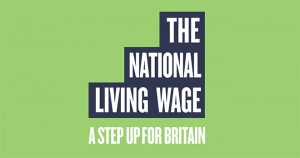Threatening stability: the National Living Wage
 On the eve of the introduction of the National Living Wage (NLW), Care England, the largest representative body for independent care providers, reiterates its call to government to fund social care appropriately.
On the eve of the introduction of the National Living Wage (NLW), Care England, the largest representative body for independent care providers, reiterates its call to government to fund social care appropriately.
From tomorrow, the new NLW, announced by the Chancellor in July 2015, will be paid to all those aged 25 and over.
Professor Martin Green OBE, Chief Executive of Care England says:
“We have warned and warned about social care underfunding and consequent provider failure, but central government has taken little responsibility for the attrition of the care sector. For some, services have already been lost, for others, the National Living Wage will be the final straw. The introduction of the National Living Wage presents an additional, unfunded, statutory cost threatening the sustainability of the social care market, heaping pressures onto care providers and ultimately residents and the NHS.”
Care England’s members have spoken out about the impact of the National Living Wage:
Dr Pete Calveley, Chief Executive of Barchester Healthcare, which provides care for older people and provides specialist services, said of the NLW:
“While all providers welcome the introduction of the National Living Wage that guarantees improved pay for our fantastic staff it is unfortunate that the government has left the very significant burden of funding this improvement with providers. This additional cost to our business comes on top of other unfunded government-imposed costs on social care provider, including the increased cost of CQC regulation and the auto-enrolment pension scheme, and yet again highlights the critical need for joined up commissioning of health and social care rather than this thoughtless stream of ‘fire and forget’ policies. Fair pay is only one element of ensuring our staff feel valued for the vital role they perform within our business and we are recognising this through a whole raft of further initiatives that reward and value our employees contribution.”
Dr Alison Rose-Quirie, CEO of Swanton Care and Community, a provider of specialist support for adults with learning disabilities, described the impact the unfunded NLW would have on their organisation:
“The introduction of the NLW is good news for our dedicated care teams and support staff, but the lack of appropriate resource to cover the pay rise has many serious unintended consequences. Without sufficient Government funding the NLW risks compressing the overall pay structure at organisations such as ours. This has far reaching implications for staff morale, incentivising career progression and potentially devaluing the contribution of long-serving employees who have worked hard to achieve the pay status that they currently receive. It seems no thought has been given to how we will we fund the rises that will now need to ripple through entire organisations – this goes far beyond an increase for those earning the least. The two per cent council tax levy and the Better Care Fund will not be sufficient and without additional Government support the future of many providers, and the vulnerable individuals they care for, will be in jeopardy. Already we have seen 250 specialist Learning Disability/ Autism care home beds be deregistered since January 1st this year, this is on top of the 3600 lost in 2015. Combine this with an increasing future need as a result of demographic changes and advancing medical science and we have a real crisis in our sector.”
The NLW will start at £7.20 per hour, and rise to £9.15 per hour by 2020.
Martin continued:
“Care workers are our biggest resource, and we want to pay them accordingly. We have been supportive of establishing a Living Wage, but have underlined this can only be done when the Government funds social care sustainably. At the eleventh hour, this still has not taken place.”





